Who is Jeff Yan? Hyperliquid Founder & Background
.webp)
Summary: Jeff Yan is an American computer scientist and the founder of Hyperliquid, a decentralized derivatives exchange processing over $10 billion daily. A Harvard graduate, Yan previously built high-frequency trading systems at Hudson River Trading.
He launched Hyperliquid in 2023, quickly scaling it into crypto’s largest decentralized exchange by 2025. Yan's net worth isn't publicly disclosed, but Hyperliquid's market cap of $14.5 billion means even a 1% ownership would place him above $145 million.
Who is Jeff Yan?
Jeffrey "Jeff" Yan is the founder and technical architect of Hyperliquid, a decentralized perpetuals exchange that handles over $10 billion in daily trading volume. With a tight-knit team of fewer than ten, he oversees one of the fastest-growing platforms in crypto, pairing trading technology with blockchain infrastructure.
Yan rarely surfaces online. His Twitter handle @chameleon_jeff is mostly silent, but every few months he comes on a podcast to casually rewrite crypto's understanding of what's possible. "If something can be built by someone else," Yan says with characteristic humility, "it should be built by someone else."
He openly rejects venture capital funding, distributing over $25 million in protocol-generated revenue back to the Hyperliquid community without allocating fees to developers. Quiet yet decisive, Jeff Yan has steadily cemented himself as one of crypto’s most influential (yet least flashy) figures.
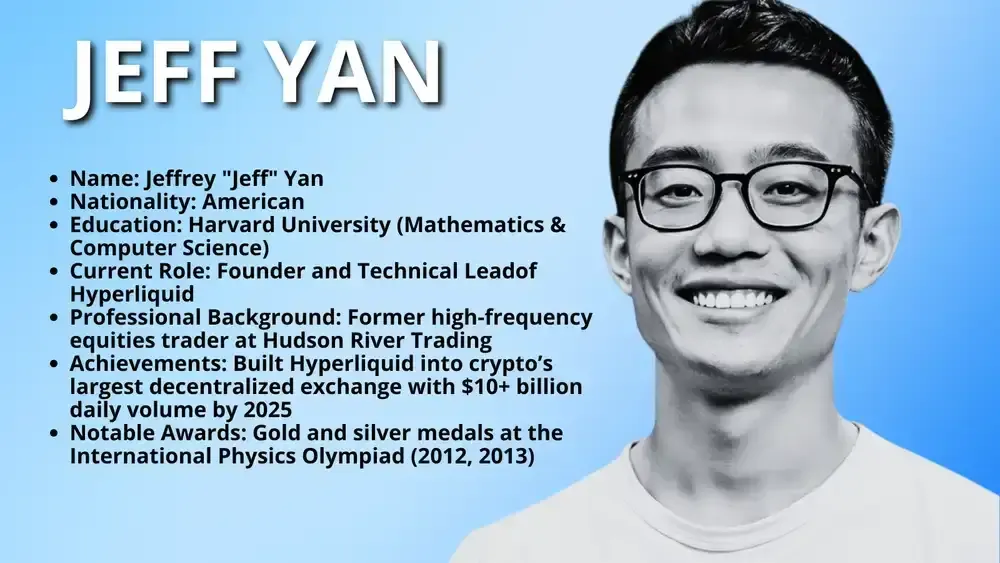
Jeff Yan's Background
Before Jeff Yan became a major name in crypto, he was already flexing his analytical muscles as a standout physics prodigy. Growing up in Palo Alto, California, he earned a silver medal representing the US at the 2012 International Physics Olympiad in Estonia, then returned the next year to claim gold in Denmark.
Yan took his passion for complex systems and enrolled at Harvard, majoring in mathematics and computer science. Immediately after graduating, he joined Hudson River Trading (HRT), an elite firm known for its advanced market-making and high-frequency strategies.
At HRT, Yan dove deep into US equities, crafting ultra-fast systems that executed thousands of trades per second. But by 2018, he felt drawn to the burgeoning crypto markets, initially attempting to build a decentralized prediction market that struggled with regulatory uncertainty and limited adoption.
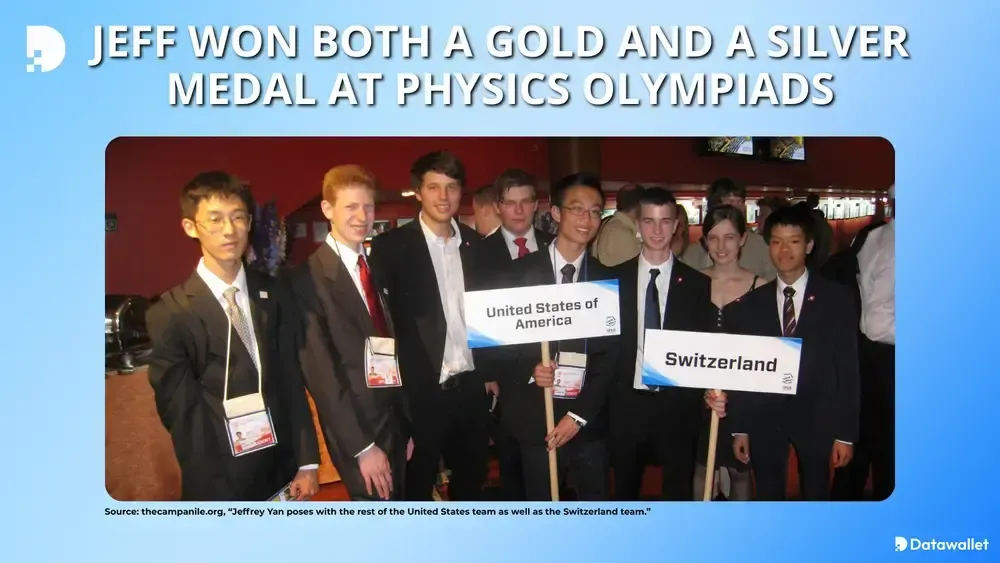
How Did Jeff Yan Create Hyperliquid?
Jeff Yan began seriously trading crypto in early 2020 through Chameleon Trading, eventually identifying structural inefficiencies on centralized exchanges. The collapse of FTX in November 2022 motivated him to pursue decentralized trading alternative, leading directly to the initial concept for Hyperliquid.
Initial Concept and Development of Hyperliquid
Recognizing existing blockchain platforms as inadequate for high-performance trading, Yan decided to create a custom Layer 1 blockchain. The initial design utilized the Tendermint consensus protocol, chosen for its speed, before the team later developed their own consensus mechanism, HyperBFT, implemented in Rust.
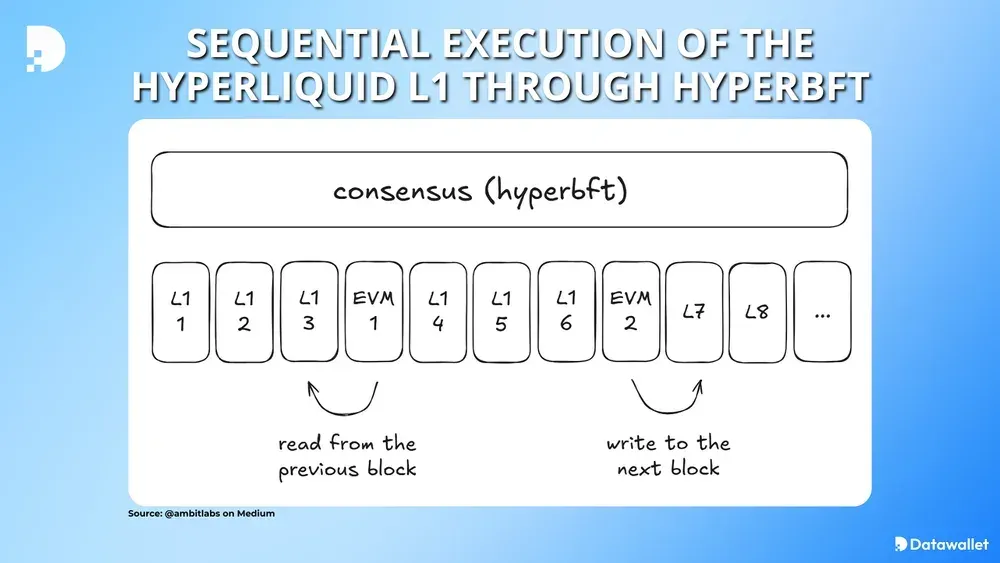
Hyperliquid Layer 1 Launch and Early Milestones
Hyperliquid entered the market around December 2023, debuting under the "Alpha" phase with perpetual contracts margined exclusively in USDC. Within six months, the platform reached substantial daily trading volumes and secured a top-20 position among L1 blockchains ranked by total value locked.
A critical early feature was its Solidity-based Ethereum bridge, audited twice and managed by validator quorum consensus. Hyperliquid also integrated Circle’s Cross-Chain Transfer Protocol to facilitate native USDC minting and redemption without conventional crypto bridges.
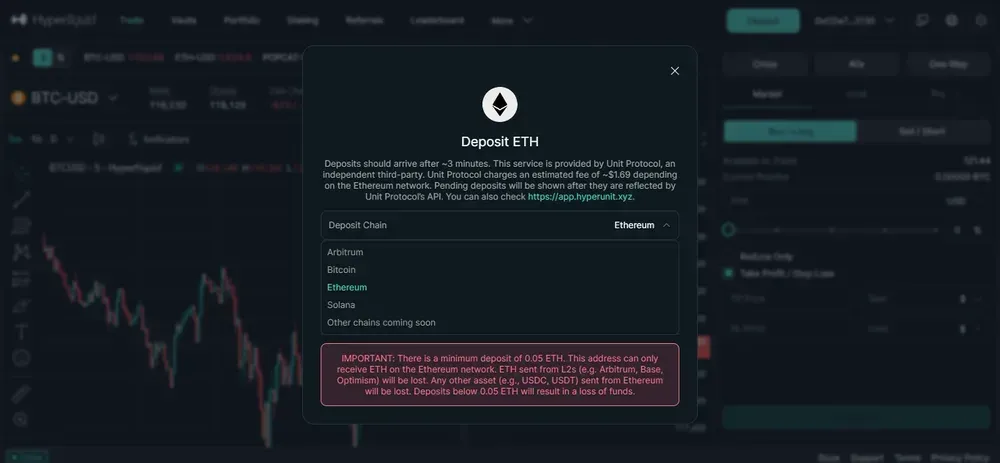
Decentralization Through HyperCore and HyperEVM
Hyperliquid launched without venture capital backing, opting instead for a genesis distribution solely to the platform’s users. Validators were allowed to participate permissionlessly from the outset, requiring a 10,000-token self-delegation of the platform's staking token, HYPE.
Protocol fees were allocated fully toward the insurance fund and liquidity providers, with the development team explicitly receiving no share. Yan emphasized composability by creating "Builder Codes," allowing external developers to independently monetize financial applications built upon Hyperliquid’s infrastructure.
Additionally, Hyperliquid’s ecosystem is distinctly separated into two complementary layers: HyperCore, the native Layer 1 order book powering the DEX, and HyperEVM, a high-performance EVM-compatible environment for smart contracts and decentralized apps.
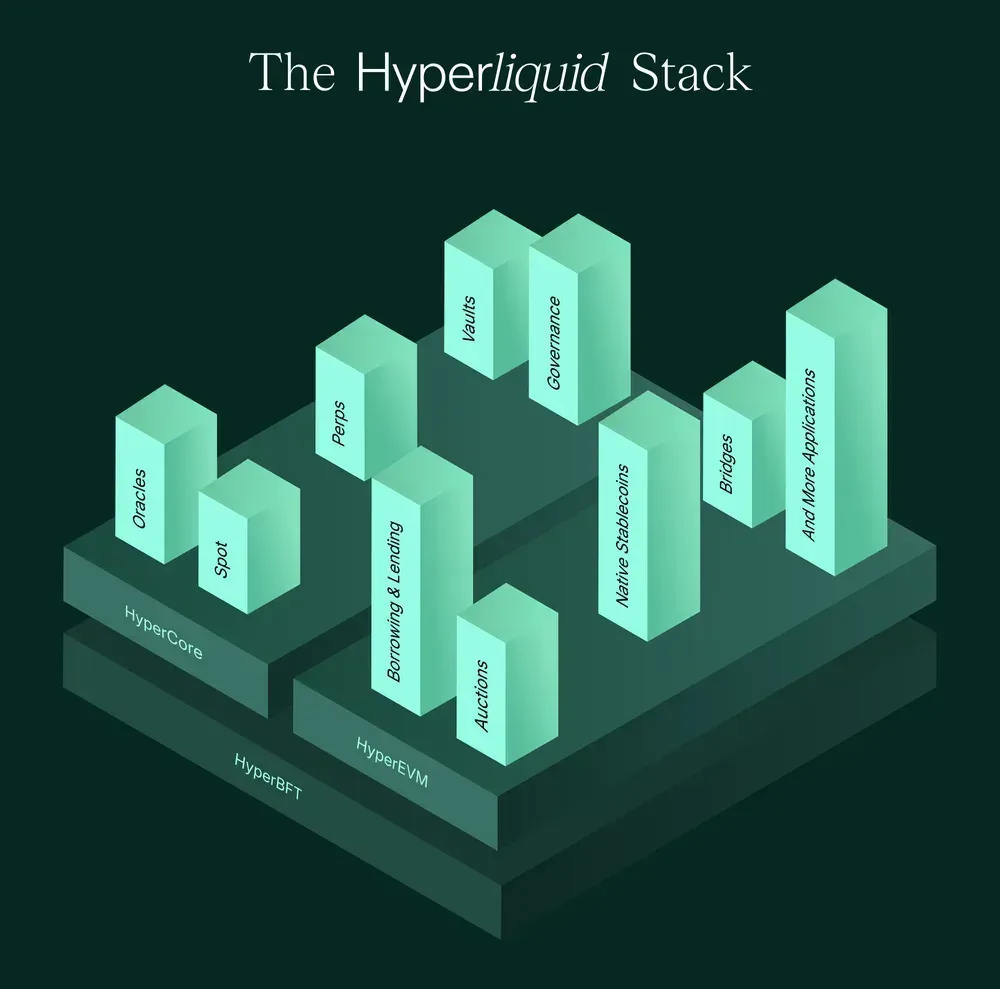
Success and HYPE Token Airdrop
On November 29, 2024, Hyperliquid launched its native token, HYPE, via an airdrop distributing 310 million fully unlocked tokens directly to its users (31% of the total supply). Nearly 39% of the HYPE supply was reserved for future community incentives, ensuring sustained user engagement and development growth.
With no allocations to private investors or centralized market makers, the distribution reinforced Hyperliquid’s community-first approach and commitment to decentralization. Meanwhile, core team tokens were locked for at least one year, with vesting schedules extending into 2028 and beyond.
Hyperliquid is now crypto's largest decentralized exchange, matching top centralized platforms in volume, open interest, and active user count. By late July 2025, the platform had processed nearly $2 trillion in trading volume from 570,000+ users, increasing its dominance in the decentralized finance sector.
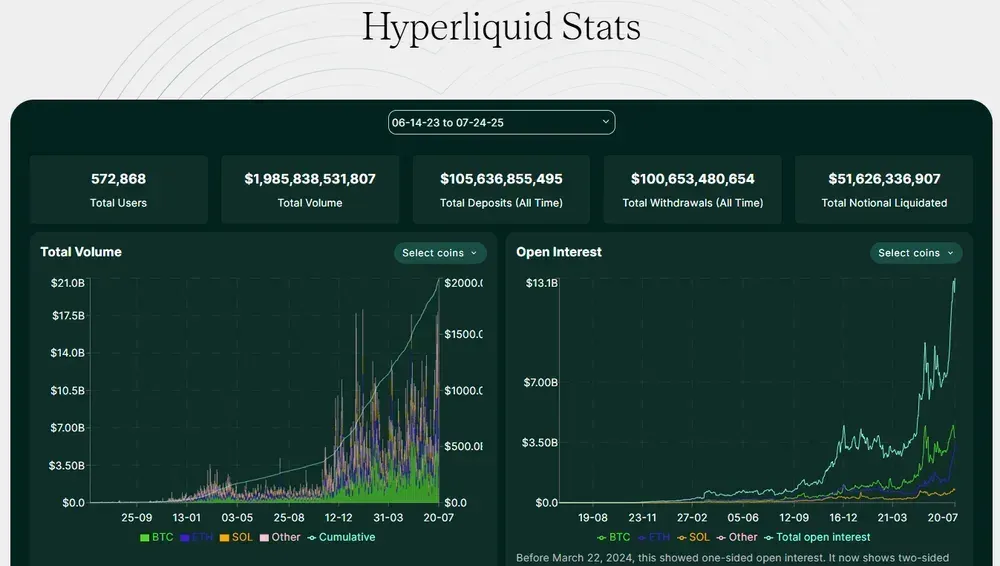
Jeff Yan's Net Worth in 2025
Jeff Yan’s exact net worth as of 2025 remains unknown, largely because there is no publicly available information regarding his personal crypto wallet or HYPE token holdings.
In the approximately 10 hours of conversation across seven podcasts we've listened to, Yan has not publicly disclosed any details about his net worth or token allocations.
However, given HYPE's market valuation hovering between $40 and $43 per token in 2025, even a modest founder allocation could've placed Yan’s net worth comfortably in the hundreds of millions or potentially billions of dollars. Without direct transparency from Yan himself, these estimates remain purely speculative.
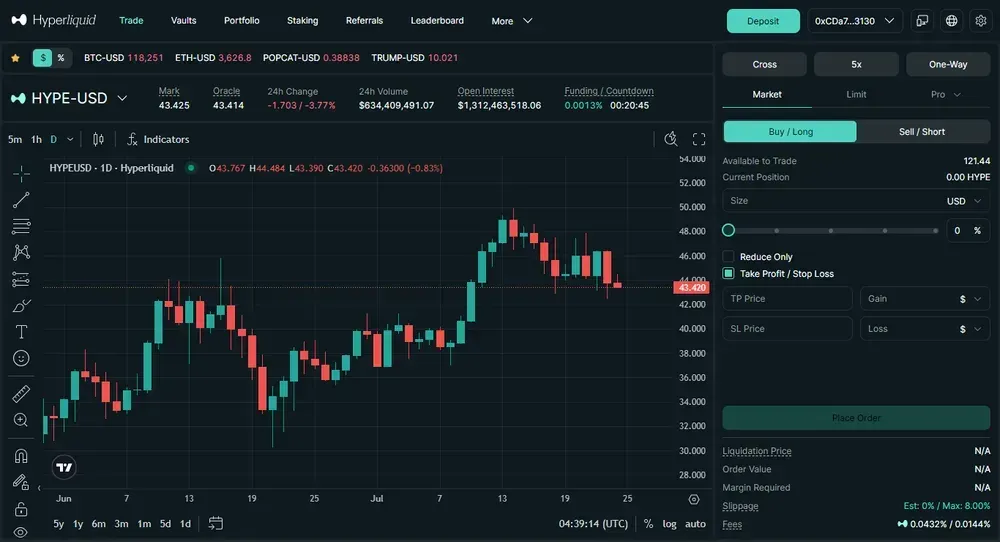
Final Thoughts
Jeff Yan didn't just build a successful crypto exchange; he quietly engineered a decentralized financial ecosystem that rivals traditional centralized platforms.
His disciplined focus on liquidity, composability, and user-first decentralization has set a new benchmark for what crypto infrastructure can achieve.
Even without seeking the spotlight, Yan's work speaks loudly… and it's clear the industry is listening.
Frequently asked questions
What did Jeff Yan do before crypto?
Before crypto, Jeff Yan was a high-frequency equities trader and systems developer at Hudson River Trading, specializing in low-latency US market-making strategies.
Has Jeff Yan invested in other crypto projects?
Jeff Yan hasn't publicly disclosed specific personal investments in other crypto projects, maintaining a low public profile beyond Hyperliquid.
What education did Jeff Yan receive before Harvard?
Jeff Yan attended Palo Alto High School in California, earning gold and silver medals for the US at the International Physics Olympiads before enrolling at Harvard.
Does Jeff Yan publicly advocate for crypto regulation?
While Yan discusses regulation occasionally on podcasts, he does not actively lobby publicly, instead emphasizing decentralized solutions to regulatory concerns.
%25201%2520(1).webp)
Written by
Emily Shin
Research Analyst
Emily is passionate about Web 3 and has dedicated her writing to exploring decentralized finance, NFTs, GameFi, and the broader crypto culture. She excels at breaking down the complexities of these cutting-edge technologies, providing readers with clear and insightful explanations of their transformative power.

.webp)
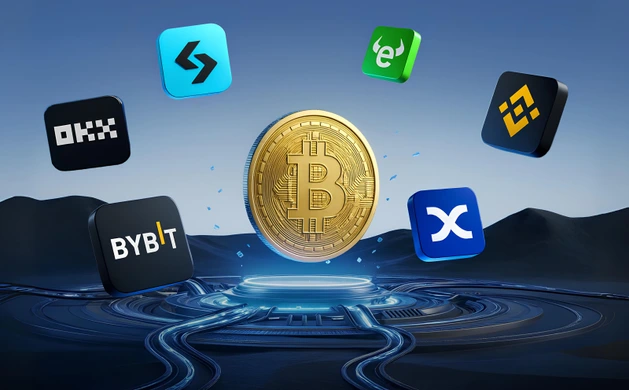
%2520(1).webp)

.webp)



